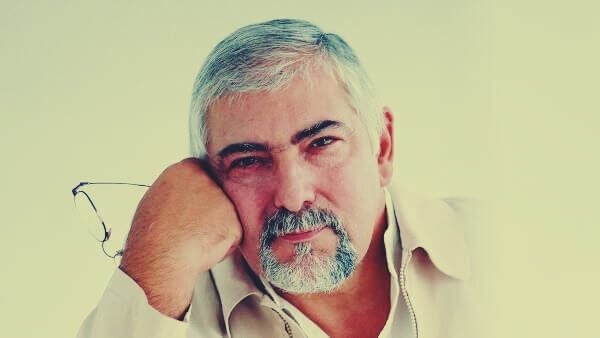Jorge Bucay’s phrases are a very interesting way to get to know his way of working, full of novelty, sensitivity and reflection. This Argentine writer and psychotherapist is now one of the most widely read in the world. Although his work is not without controversy, Bucay has an undeniable role in contemporary culture.
His training began at the Faculty of Medicine of the University of Buenos Aires, soon specialized in mental illness and became a prominent therapist of the Gestalt school, since the 80s he has also become known as a writer and several of his books have reached the top of the bestseller list.
- “It is my responsibility to turn away from everything that hurts me.
- Is it my responsibility to defend myself against those who hurt me.
- -Jorge Bucay-.
Jorge Bucay’s phrases are marked by a very human and profound approach, they are also a call to believe in oneself and to assume responsibility for one’s destiny, your statements are certainly a great opportunity to reflect, here you have 10.
Many of Jorge Bucay’s phrases deal with the issue of individual responsibility, in this one, for example, reminds us that we must face the consequences of our actions, that is, not blame anything or anyone outside of us for our mistakes or says: “I allow myself to take the risks that I decide to take, provided that I myself pay the price of those risks”.
In this other sentence, he says, “No one can have knowledge for you, grow for you, seek or do what you should do. Doesn’t the existence itself admit substitutes? It’s another phrase by Jorge Bucay that invites us. “take responsibility for our own lives.
Suffering is a recurring theme for many thinkers and, of course, this issue could not be missed when we talked about Jorge Bucay. One of his sentences reads: “We are who we are for all that we have already lost and how to act upon these losses. ” It is very interesting that it places so much importance on the losses and the way we deal with them. These aspects have a central place in who we are.
In this other sentence, he speaks of the importance of patience to strengthen us and so that we can better respond to life’s unforeseen events. He says, “When you have patience on a day of anger, you can easily prevent them from following 100 sad days. “
Jorge Bucay believes in the power of people to make his life a space to realize and overcome suffering. One of his phrases contains the key to using this power when we don’t see a way out: “When you find yourser in a seemingly dead-end situation, go back and go where you came in. “
Another of the most common themes in Jorge Bucay’s texts is self-awareness. It is possible to know your point of view in this statement: “The most important step towards growth is to become aware of yourself, the worst and the best. “
Along with self-know-how, the author also promotes free will and radical independence of the person around him. This is strongly expressed in the following sentence: “I allow myself to look for what I consider necessary in the world, and not wait for someone to give me permission to obtain it. “
Bucay also constantly refers to culture and what he calls in his books. He is very critical of certain cultural aspects, particularly with regard to consumerism. One of his phrases reads: “The culture of consumption has consequently created an attitude of rivalry and comparison that has brought us up forever to face others. “
Jorge Bucay also questions the enormous exaggeration of the importance of the “I”. Contemporary Western culture. By then, he says, “In circumstances where we cannot get rid of the ego for a moment, the image we will have of ourselves will become a prison. “A good way to show that he? My exacerbated does not reaffirm us, but imprisons us.
For Jorge Bucay, the change is to transform the way we see ourselves, what he says is that human actions must be aimed at achieving a gradual reaffirmation of who we are, there should not be a movement towards the ‘I should be’.
It is in this sense that one of Jorge Bucay’s phrases says: “You can only change one thing when you finally stop fighting it. “It is a way of saying that transformations must be fluid, and only in this way will they reaffirm the being of each.
Jorge Bucay’s texts are simple and written in familiar terms, it’s good to reach a lot of people, but it’s also earned him a lot of criticism, whether criticized or not, he’s one of the most widely read authors today, which probably also indicates that he’s widely accepted by his audience.

